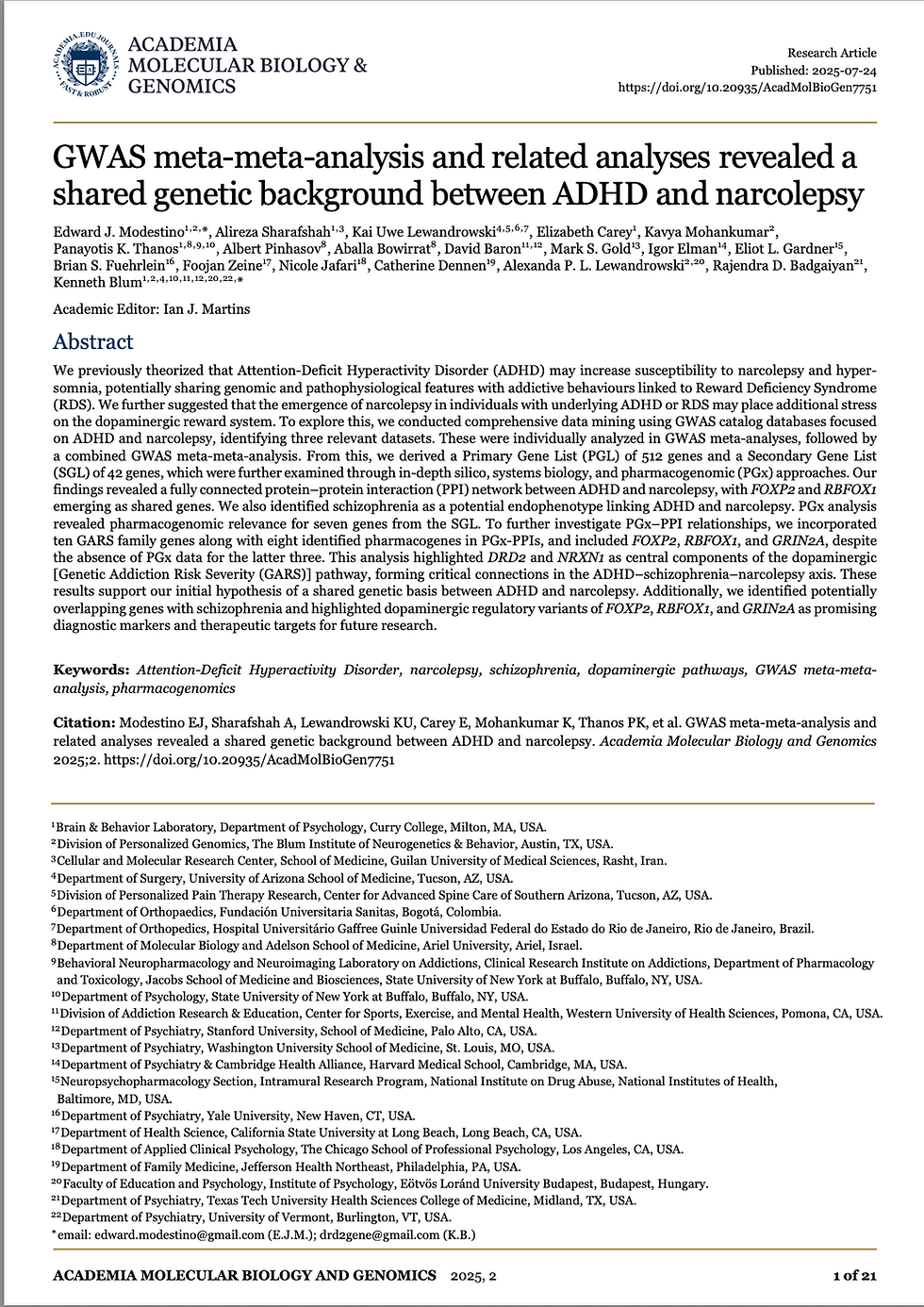October 2024: Interns' Blog
- Edward Justin Modestino, Ph.D.

- Oct 30, 2024
- 3 min read
Written by Jakai Kelly and Rachel Sanford

During the last month of psychology research, two studies share the workings of the mind and the impact it can have on your mental health, mainly the emotional regulation and the interpersonal dynamics. The articles “Impaired Self-Mentalizing May Underlie Emotional Dysregulation in Vulnerable Narcissists” and “Blurry Boundaries: How the Brain Confuses Self and Others in Borderline Personality Disorder” explore these cognitive process in detail, which opens up about emotional response and self-perception in individuals.
Impaired Self-Mentalizing May Underlie Emotional Dysregulation in Vulnerable Narcissists
This article explores the concept of narcissism and the emotional connection that makes one vulnerable. After research on this topic, it has come out that individuals who suffer from this trait of narcissism often experience struggles with self-mentalizing (Dolan, 2024). These individuals find it hard to cope with their own mental states and emotions. This can then develop into severe mood swings and horrible reactions to perceived failures as a result of impaired self-awareness. This impairment contributes to significant emotional dysregulation. The article then goes on to highlight that narcissists are not really self-absorbed as most people believe but that they have very fragile self-esteem. This can lead to intense defensive and aggressive behaviors because of the perception that their self-image is being threatened. One must understand the reasoning behind these emotional responses in order to help with the intervention for these people that helps them foster self-awareness and better coping strategies.
Blurry Boundaries: How the Brain Confuses Self and Others in Borderline Personality Disorder
Similarly to the first article, this article discusses a personality disorder that alters an
individual's sense of self. In this article, the personality disorder being focused on is
borderline personality disorder (BPD) (Dolan, 2024). People with this condition experience
rocky relationships, a wavering self-image, and act impulsively. Individuals with BPD also
struggle with understanding between themselves and others. This blurry boundary can lead to many problems in a variety of relationships because individuals with BPD often
project their feelings onto others and struggle with understanding social cues. Previous
studies on BPD suggest that individuals with this condition struggle with separating their
own thoughts from the perspectives of others. This cognitive confusion, however, is quite
difficult to measure. Researchers in the current study decided to explore whether these
struggles could be observed in the brain through the examination of neural patterns in
individuals with borderline personality traits when prompted to judge their characteristics
as well as those of others. The results of this study found that brain activity had greater
similarities between self-judgment and third-person judgment when imagining how others
perceived them in those with higher borderline personality traits. This suggests that
individuals with these traits may have a hard time distinguishing the perspectives of
themselves from those of others. These findings were only true regarding people who are
close to the individual. This could play a key role in the unstable self-image of those with
this condition. While the findings of this study are important, they have some limitations
because they do not reflect real-life scenarios that individuals with this condition face.
References
Dolan, E. W. (2024a, September 23). Blurry boundaries: How the brain confuses self
and others in borderline personality disorder. PsyPost. https://www.psypost.org/blurry-boundaries-how-the-brain-confuses-self-and-others-in-borderline-personality-disorder/
Dolan, E. W. (2024, October 7). Impaired self-mentalizing may underlie emotional
dysregulation in vulnerable narcissists. PsyPost. https://www.psypost.org/impaired-self-mentalizing-may-underlie-emotional-dysregulation-in-vulnerable-narcissists/



Comments